'You may see some movement indicating a simpler tax regime with less exemptions, but with fewer tax rates making life simpler for taxpayers.'
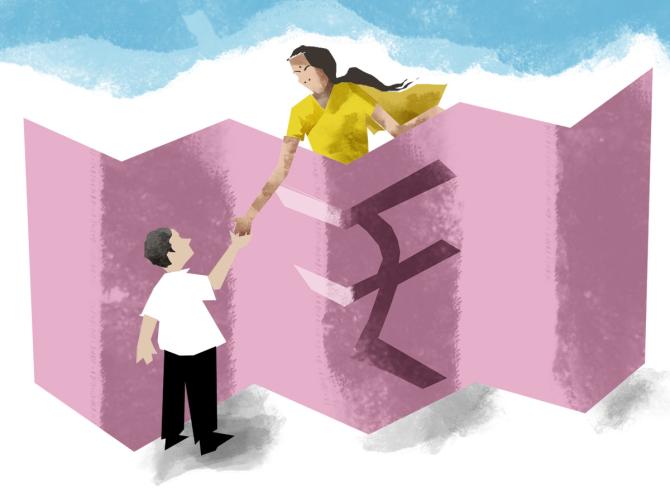
Rahul Bajoria is the Head of EM Asia (ex-China) Economics Research at Barclays.
In this interview with Prasanna D Zore/Rediff.com, Bajoria outlines the challenges that Finance Minister Nirmala Sitharaman will deal with while drafting the Union Budget for 2023-2024.
What bearing could a moderate reading of US inflation data in the US have on the direction of interest rates in India?
I would say it's (the impact of US inflation rate on interest rates in India) a secondary factor, simply because US inflation has been elevated for a while and last couple of prints (of US inflation numbers) there have been some monetary downside surprises.
But then for India, primarily, the direction of interest rates is determined by local domestic inflation considerations. India's inflation numbers would probably have a much more important bearing.
US inflation matters because it has impact on global risk sentiment which will play a role but probably not the most important factor.
How do you see headline inflation panning out in India in the next few quarters in the context of pressure on oil prices, especially due to the Russia-Ukraine war?
What other challenges do you see for the RBI in managing inflation in India?
After a year of relatively high inflation, we do think that inflation in the next few quarters is going to start moderating towards the RBI's target of 4 per cent, but then bulk of it will just be feeding of imported price pressures that were pretty elevated through 2021 and 2022.
What we do think will happen is that the commodity side of it will become less punitive, but then there are early signs of the demand side price pressures starting to kind of entrench themselves which is effectively a reflection of strong growth conditions and outperformance in the domestic part of the Indian economy.
And so, while we do expect inflation to be lower in the next few months, we reckon that we will still average close to around 4.7 to 5 per cent over the next 12 months, which means the RBI will continue to be reasonably cautious as far as the broader monetary policy approach is concerned.
We are looking at one more (interest) rate hike in February beyond which the RBI will probably take a step back and reassess the need for further rate hikes in the system.
Throughout the world, we are seeing interest rates on the rise. Is there any correlation between the recent rise in gold prices and the fears of a looming global recession?
Gold is historically seen as a hedge against high inflation and sort of perceived to be a safe haven asset.
So, some anticipation of recessionary conditions, along with an environment of relatively sticky inflation is probably propping up prices of gold at least from the context of large buyers of gold like India.
We don't necessarily see that dynamic playing through here as the speculative demand for gold, about a decade ago when India had a very high, entrenched inflation is not prevalent today.
We had multiple years of very elevated inflation numbers. Then the physical demand for gold as well as speculative demand was high as well.
We don't see that trend at least in India as things stand today. But globally, certainly, the fears of recession -- combined with high inflation -- are probably playing part in propping up gold prices.
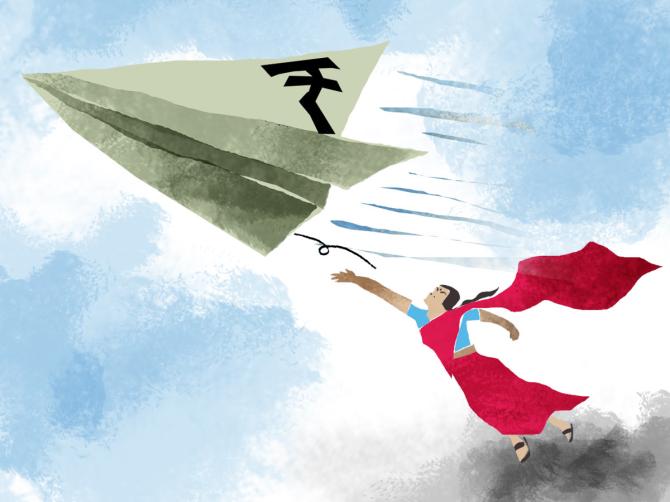
We are close to the Budget. What are your expectations from the Budget? And importantly, do you see the finance minister going for a populist Budget just a year before general elections are scheduled in India?
The room for populism is very limited because if you look at some of the decisions in the lead up to the Budget, like the rationalisation of food subsidy that happened with the shelving of the pandemic-related food outlays that were being made indicates to us that the government will stick to the path of fiscal prudence.
Our sense is that there will be some work done to continue to support capital expenditure which has been a very big focus area for this particular government in the last few years.
There will also be a sense of keeping the tax policies reasonably predictable and stable, so we are not anticipating any new taxes being introduced or any rates being increased. The consolidation will largely be a function of a wider nominal GDP base and maybe some stability in the fiscal deficit numbers.
We are looking for modest consolidation (in fiscal deficit numbers), but we don't think that there will be any major populism that will be visible in the Budget even as the shadow of the next general Budget looms large.
Will the government have enough leg room to reduce the fiscal deficit from 6.4 per cent of GDP to about 6 per cent, which the government intends to?
And if that happens would the government then have enough legroom to push for higher growth?
We reckon there will be visible amount of legroom mainly coming from the fact that revenue growth -- whether you look at direct taxes or GST collections -- has been doing pretty well. And that is both the function of high nominal GDP growth in the economy and also some efficiency gains in terms of more people being compliant with the broader tax regime.
That should set up the base for the government to be able to spend on an ongoing basis.
The other factor that supports spending is basically the shifting away from a lot of the pandemic-related spending -- like vaccination costs are not going to be there in the budget next year (for financial year 2023-24).
We are also expecting lot of food subsidy bills to come down at the margin. This should allow the government to use that money for more productive purposes like capital spending and physical infrastructure.
You might see that shift in the expenditure profile which will have greater multiplier effects on the economy just the way it is set up.
So even if the absolute quantum of spending does not increase at the same pace, you will at least end up with a more productive mix of spending, which is probably what is required.
Would the finance minister feel encouraged to be bolder in her approach by the rising trend of GST collections in the recent past?
The GST collections after the first few couple of years of going through big changes of rates, etc., appears to have settled down and the benefits of formalisation are very clearly coming through in terms of higher revenues.
From here on further simplification of the GST model in terms of rationalisation of quite a few rates over a period of time should probably be the priority, but, obviously, that's not an item to be addressed in the Budget since the GST is decided by the GST council, which means it's outside the Budget.
GST rationalisation remains a priority from our perspective, but something that probably gets taken up not now, but maybe in the future.
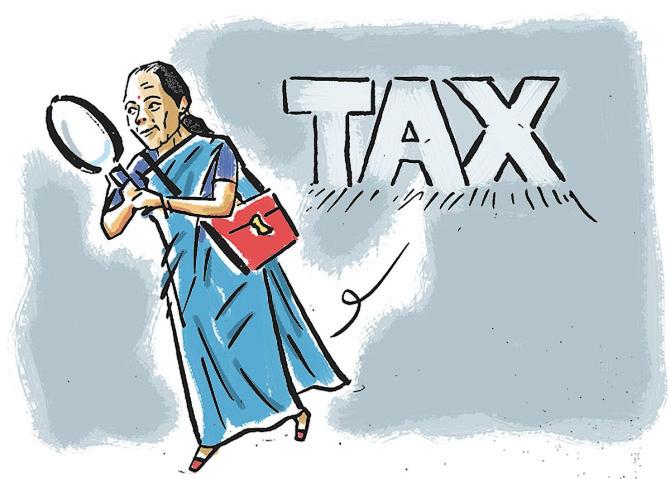
Do you expect any major sops for the middle class especially for the salaried in the Budget? The grapevine is always rife with talks of cuts in direct taxes for the salaried on the eve of Budgets.
We are not expecting any material shifts as far as the direct tax rates are concerned. We reckon that the focus on the part of the government and the ministry of finance would be to try and make it simpler and improve the processes rather than give extra sops as far as tax cuts are concerned.
I think you may see some movement indicating a simpler tax regime with less exemptions, but with fewer tax rates making life simpler for taxpayers.
But we are not expecting any material decline in tax rates or any kind of sops being offered especially considering that we are entering a period where the global economy remains pretty vulnerable and you don't want to reduce your spending capacity on more pressing matters.
What if you have another round of commodity price shocks? We need some fiscal room to deal with it, so we don't expect any major reductions in (direct) tax rates.
Has India, in your opinion, emerged from the post pandemic economic squeeze? Which sectors offer the hope to the Indian economy and which sectors are yet seen as pain points?
I would say we are still in the middle of the recovery process from the pandemic in the sense that with the vaccination cycle broadly over, high-contact services sectors like travel and tourism and hospitality are doing quite well.
But there are parts of the economy which have probably not recovered fully. Some have recovered a lot more than what was the case earlier. Broadly speaking, we are very well entrenched in that recovery process.
From our perspective, India remains a relative bright spot as far as the global economy is concerned, and these are primarily due to domestic considerations that India's domestic economy and consumption momentum appears to be reasonably good.
The cleanliness of the banking system, particularly the declining NPAs, offer a bigger room for Indian corporates to be able to lean on domestic banks for financing even as global interest rates are rising. So that adds a bit of stability to the growth momentum in the country which probably other countries are not experiencing.
This combination of having low leverage, reasonably clean balance sheets and a strong and sustained recovery out of the pandemic probably sets up India for a reasonably strong performance as far as its own growth record is concerned. Obviously, the global headwind will have an impact on India's external sector.
The challenge for policymakers will be to balance sustained domestic growth while ensuring that external shocks do not destabilise India's economic recovery.
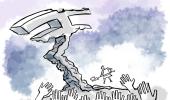
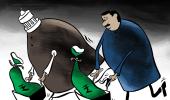


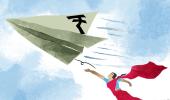



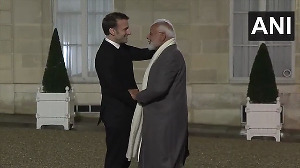


 © 2025
© 2025